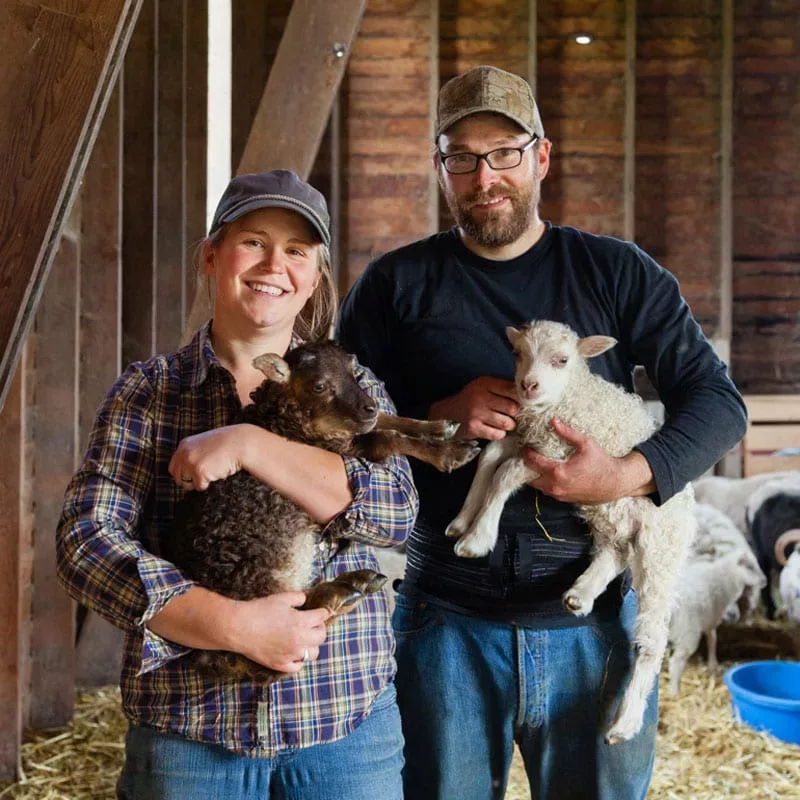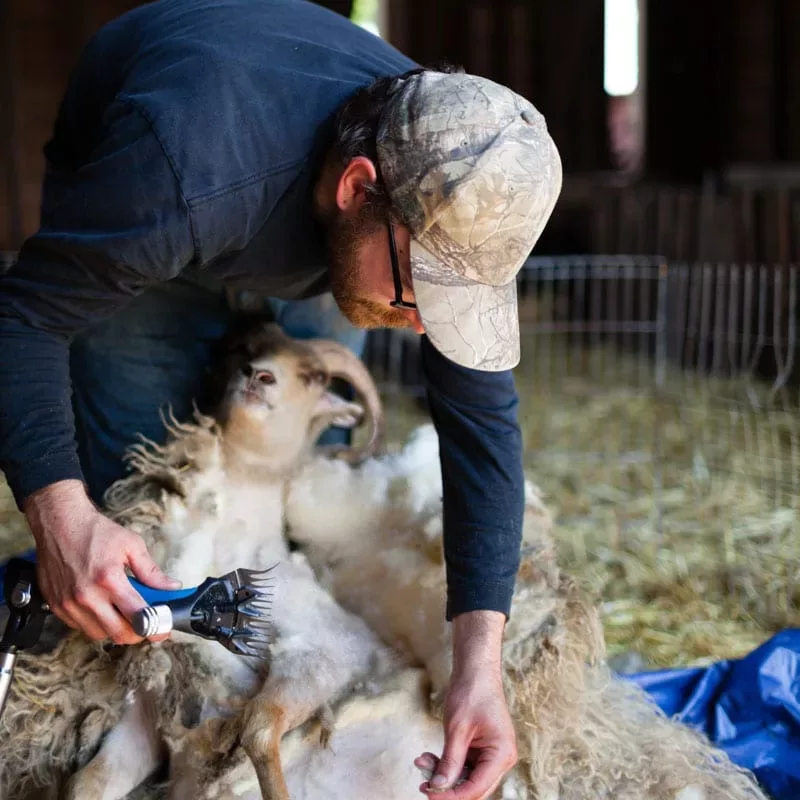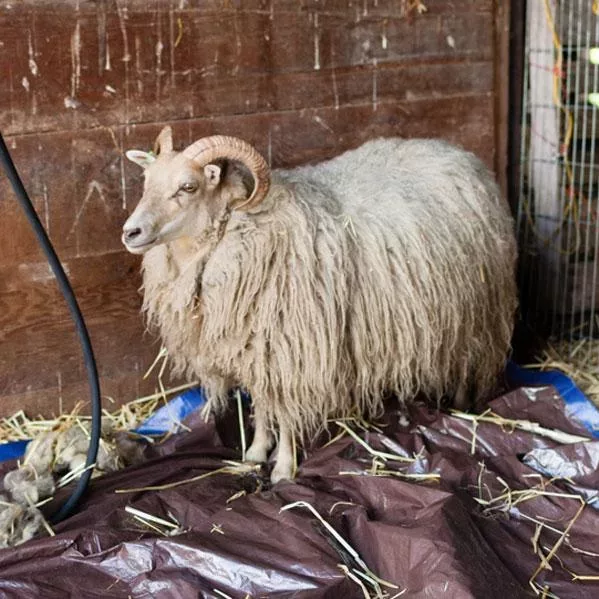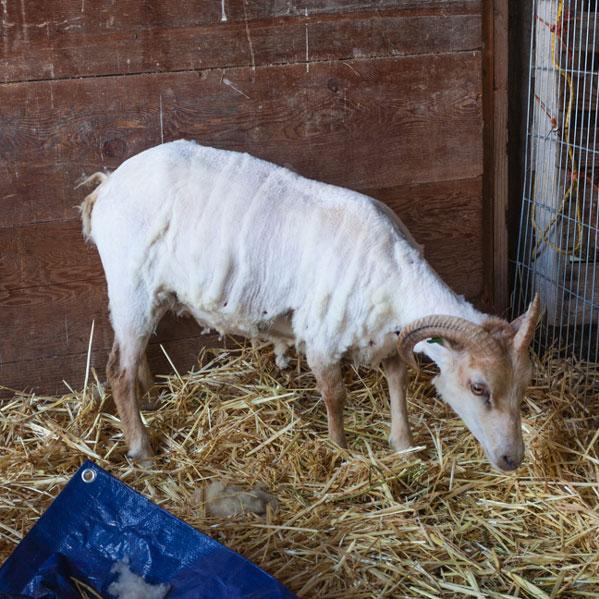
Farm Fund Spotlight: McIntyre Family Farm
With support from a Co-op Farm Fund grant, couple shares equipment and know-how to help revitalize the art of sheep shearing.
In late May, Matt Curtis, Co-op graphic artist and photographer, and I had the good fortune to visit McIntyre Family Farm. We couldn’t have visited at a better time, as the McIntyre’s Icelandic sheep flock had recently finished lambing and we enjoyed the splendor of 20 adorable lambs, some only one-week old, cavorting around the barn, being generally silly and annoying their moms. Oh, we also got to hold a tiny lamb, which was a wonderfully satisfying treat for us city slickers. I’d recommend it, if you ever have the opportunity.
Since 2013, Matt and Jena McIntyre, now with their young son Elton, live and farm off the scenic North Cascades Highway near Sedro Woolley in a charming farmhouse and chicken coop that date back to 1925. The farm is a diverse enterprise that focuses on pasture-based and grass-fed livestock.
The couple is in the third year of Sustainable Connections farm mentoring program, Food To Bank On, and has also completed a hands-on course at the Washington State Shearing School where they learned the New Zealand method of sheep shearing. If you’ve ever watched any of those televised sheep shearing competitions from New Zealand where people shear a perfect one-piece fleece in an insanely short amount of time (like in a minute!), that is the type of shearing they learned. Google it; it’s amazing!

Matt and Jena aren’t breaking any world records, yet, but the knowledge they acquired at the sheep shearing school did inspire them to apply for and receive a Farm Fund grant to purchase mobile shearing equipment so they could share their skills and equipment with other local farmers.
Shearing is somewhat of a lost skill, and small farms are outlaying a fair amount of money to pay professionals, in high-demand, to shear their animals. During our visit Matt and Jena sheared several sheep. Those New Zealanders make it look easy, but up close and in-person, it doesn’t look easy at all.
There is a lot of technique involved (and a lot of back strain)!


The new mobile shearing system, funded by a Farm Fund grant, will help farmers in several ways:
1. It is far more efficient than handheld electric shears, saving time and labor.
2. It can be run from a 12-volt battery making it entirely portable so sheep can be sheared on pasture even if no electricity source is available, which benefits the sheep since they don’t need to be transported for shearing.
3. By avoiding costly professional shearing fees, farmers can add another revenue stream from wool—a value-added product.
After word got out that the McIntyres had both shearing know-how and equipment, fellow farmers initially wanted to simply hire them to shear their animals. But, the couple is confident, that given time, the farming community will realize the benefit of learning how to shear their own animals.
Jena and Matt established their sheep flock in 2015. Of the 20 lambs born in the spring of 2016, all were twins except for two onlies. Matt explained that twins are not only common, but very desirable as the first lamb basically pays for the mom and the second lamb will generate a profit for the farm.
The couple is also establishing a herd of cows, raises pigs and poultry (mostly chickens) for both meat and eggs, and farms vegetables. They carefully care for their 30-acre pasture by constantly rotating their animals and crops, which not only controls parasites and disease but provides the best possible forage for their livestock.
You can find McIntrye Family Farm products at the Saturday Bellingham Farmers Market, and during the summer season they also offer a CSA.
Learn more at mcintyrefamilyfarm.com.